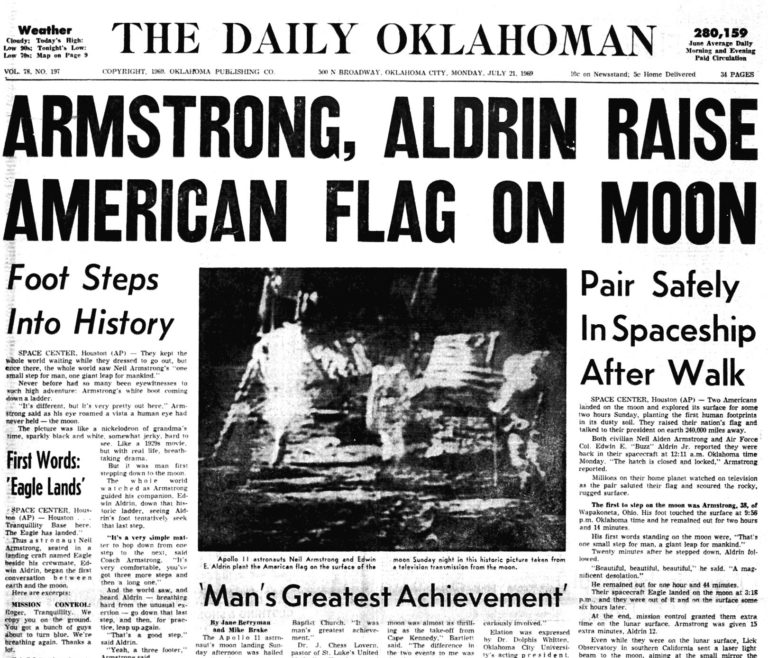How The Oklahoman covered Apollo 11
Apollo 11 was front-page news for weeks in Oklahoma, much like the rest of the world.
Newspaper reporters from Oklahoma City covered not only the mission, but the unusual quirks of big a story that journalists like to track down.
Perhaps the most bizarre was a report on Moon, a community in far southeastern Oklahoma that barely registers on maps. The hamlet was a destination for Mrs. George Ann Kerley of Bakersfield, California, winner of a contest sponsored by an airline and Bakersfield businesses. Kerley would fly to Durant, then to Idabel before boarding a helicopter bound for Moon.
Other reporting was more in line with the news of the day, with exuberant reports on Oklahomans involved in the space program. Dave Dryden, reporting from Houston, told a story about W.W. "Woody" Wilson and his engineering shop that built tools for use on the lunar surface. Of the 20 other engineers at his shop, six were from Oklahoma.
Someone learned that Chandler native Glenda Lawrence, who once served as a dietician for Oklahoma State University, had prepared the meal routine for Apollo 11 astronauts.
The mother of Apollo 10 astronaut Tom Stafford, of Weatherford, told The Oklahoman that she was glad her son wasn't on the moon.
Mary Stafford said her son had his share of flights.
"Three times are enough for any one family to wait through," she said.
We also took the state's temperature, so to speak.
Woodward resident Clifford Parsons sat down to in front of his TV to watch humans land on the moon. A reporter called him that day and asked what he thought about it.
"I don't know," Parsons said. "It doesn't matter one way or the other."
Other responses conveyed fear and amazement at the historic mission.
"I think it's wonderful. I've just been living for this," said a woman who identified herself as Mrs. Joe Young. "I'm really lucky to be living in this age."
The moon landing even made its way into the most unlikely of places, the state prison in McAlester. Warden Ray H. Page said he permitted more than 2,000 inmates to stay at their TV sets and radios throughout the day.
"You simply can't deny these people the opportunity to witness this new chapter in the age of mankind," Page told Oklahoman reporter Robert B. Allen. "I don't think we have ever granted such a privilege before, but then nothing like this in our time has ever happened before."
